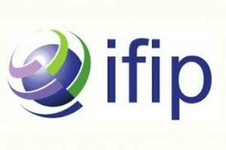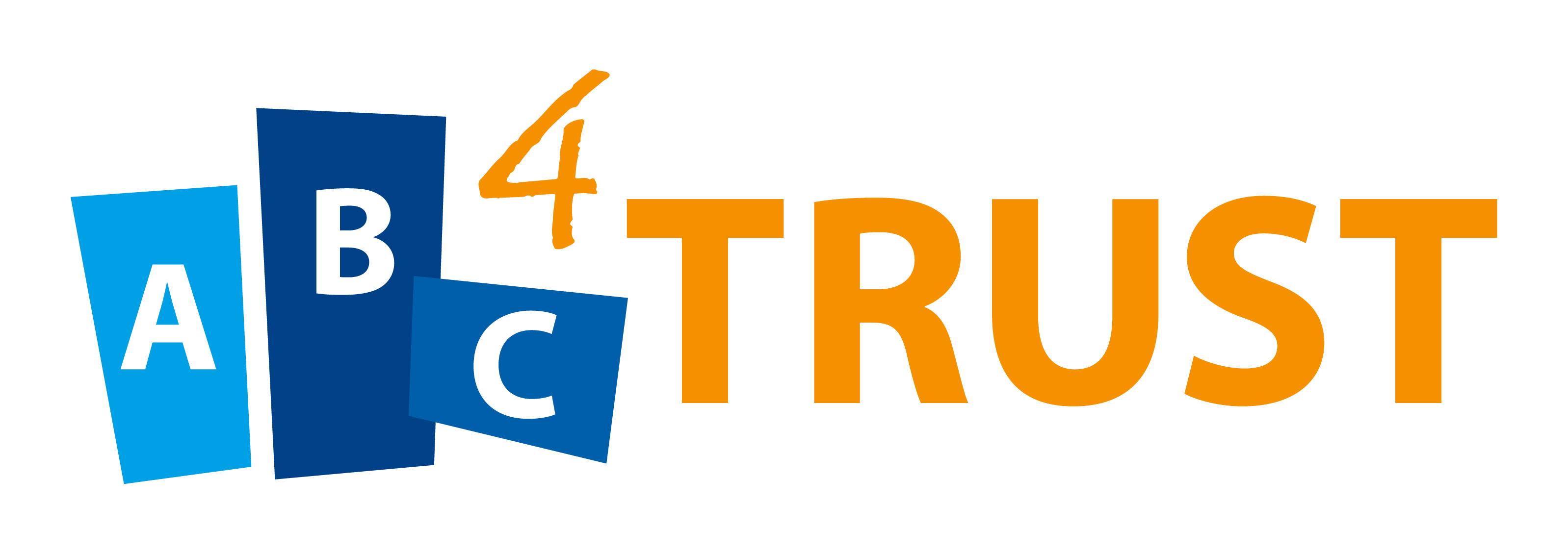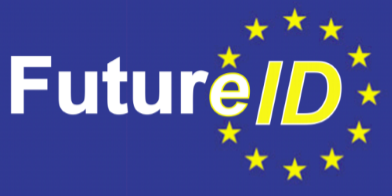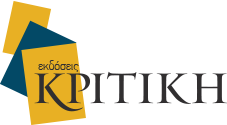Archive - 9th IFIP Summer School on Privacy and Identity Management 2014

Call for Papers
Welcome to the IFIP Summer School
The 9th International IFIP Summer School on Privacy and Identity Management for the Future Internet in the Age of Globalisation will take place on 7-12 September, 2014 in Patras, Greece. The summer school is hosted by the Computer Technology Institute and Press “Diophantus” located near the University of Patras.
Introduction
Much research in privacy and identity in recent years has focused on the privacy issues associated with new technologies such as social media, cloud computing, big data, ubiquitous and ambient technologies. Due to the fact that many of these technologies operate on a global scale, their use not only touches the countries where they originate (in many cases, the US), but individuals and groups around the globe.
The recent revelations regarding the surveillance practices of the National Security Agency (NSA), USA, and Government Communications Headquarters (GCHQ), UK, (and undoubtedly others that we will hear about since writing this Call for Papers) have put state surveillance firmly back on the table. Here, too, the operations by agencies in one country affect individuals and groups around the globe. Indeed, the NSA is primarily tasked with intercepting and processing the communication of non-US citizens, within the US and abroad.
Privacy and identity management issues have hence become global issues requiring the attention of multiple disciplines, both technical (computer science, cryptography) and non-technical (law, ethics, social sciences, philosophy) and the need to look beyond national borders.
Regulators are trying to readjust the legal frameworks in which the information society operates, both in Europe (think of the data protection reform that should in 2014 culminate in the General Data Protection Regulation), the US (the Federal Trade Commission initiatives with respect to big data, Consumer Privacy Bill of Rights), and elsewhere. Leading Internet engineers have also agreed to upgrade standards to improve Internet privacy and security.
Questions facing the research community include: How can individuals’ privacy rights be achieved effectively in a globalising information society in which both states and private enterprises exhibit great data hunger? What technologies, frameworks and tools do we need to gain, regain and maintain informational self-determination and lifelong privacy? Do we have to advance the concepts of privacy and identity management in this evolving world?
These questions and many others will be addressed by the IFIP Summer School 2014 on Privacy and Identity Management for the Future Internet in the Age of Globalisation. The Summer School organisation will be a joint effort of IFIP (International Federation for Information Processing, Working Groups 9.2, 9.5, 9.6/11.7, 11.4, 11.6, Special Interest Group 9.2.2) and several European and national projects. The IFIP Summer School 2014 will bring together junior and senior researchers and practitioners from multiple disciplines to discuss important questions concerning privacy and identity management and related issues in a global environment.
We are especially inviting contributions from students who are at the stage of preparing either a master’s or a PhD thesis. The school is interactive in character, and is composed of keynote lectures and workshops with master/PhD student presentations. The principle is to encourage young academic and industry entrants to the privacy and identity management world to share their own ideas, build up a collegial relationship with others, gain experience in making presentations, and potentially publish a paper through the resulting book proceedings. Students that actively participate, in particular those who present a paper, can receive a course certificate which awards 3 ECTS at the PhD level. Students who will not be presenting a paper will receive a course certificate which awards 1.5 ECTS at the PhD level. The certificate can certify the topic of the contributed paper so as to demonstrate its relation (or non-relation) to the student’s master’s or PhD thesis.
Basic elements of the Summer School
The Summer School takes a holistic approach to society and technology and supports interdisciplinary exchange through keynote lectures, tutorials, workshops, and research paper presentations. In particular, participants’ contributions that combine technical, legal, regulatory, socio-economic, social or societal, ethical, anthropological, philosophical, or psychological perspectives are welcome. The interdisciplinary character of the work is fundamental to the school. The research paper presentations and the workshops have a particular focus on involving students, and on encouraging the publication of high-quality, thorough research papers by students/young researchers. To this end, the school has a two-phase review process for submitted papers. In the first phase submitted papers (short versions) are reviewed and selected for presentation at the school. After the school, these papers can be revised (so that they can profit from their discussion at the school) and are then reviewed again for selection into the school’s proceedings which will be published by Springer. Of course, submissions by senior researchers and European, national, or regional/community research projects are also very welcome.
Contributions
The school seeks contributions in the form of research papers, tutorials, and workshop proposals from all disciplines (e.g., computer science, economics, ethics, law, psychology, sociology and other social sciences).
Topics of interest include, but are not limited to:
- data breaches and cybercrime,
- data retention and law enforcement,
- impact of legislative or regulatory initiatives on privacy,
- impact of technology on social exclusion/digital divide/social and cultural aspects,
- privacy and identity management (services, technologies, infrastructures, usability aspects, legal and socio-economic aspects),
- privacy by design and privacy by default,
- privacy-enhancing technologies (PETs),
- privacy issues and PETs relating to eIDs, social networks, crowdsourcing, big data analysis biometrics, and cloud computing, social computing,
- privacy standardisation,
- profiling and tracking technologies,
- semantic web security and privacy,
- social accountability and ethics,
- surveillance and privacy and identity management,
- surveillance and sensor networks,
- transparency-enhancing technologies (TETs),
- trust management and reputation systems.
Research papers are expected to contribute towards application scenarios, use cases, and good practices; research with an empirical focus; and interdisciplinary work. They will be selected by the Summer School Programme Committee based on the review of an extended abstract. Submissions should contain a concise problem statement, an outline, and clear messages (they should not be about work “to be done”). Accepted short versions of papers will be made available to all participants in the Summer School Pre-Proceedings. After the Summer School, authors will have the opportunity to submit their final full papers (in Springer LNCS format) of 8-16 pages in length (and will address those questions and aspects raised during the Summer School) for publication in the Summer School Proceedings published by the official IFIP publisher (Springer). The papers to be included in the Final Proceedings will again be reviewed and selected by the Summer School Programme Committee. Students are expected to try to publish their work through this volume.
Tutorials are expected to last one or two hours. Proposals should contain a short summary and state the level and background required for attendees to follow the tutorial.
Workshops are expected to last one or two hours and must produce short papers summarising the outcome for inclusion in the proceedings. Proposals should contain a short statement summarising the topic(s) to be discussed and the expected contributions of the audience.
Best Student Paper Award
At the IFIP Summer School, a Best Paper Student Award will be selected and handed out. Papers written solely or primarily by students and presented by a student at the Summer School are eligible for the award. If the paper is co-authored by senior researchers, the authors have to state that the main work and contributions can be clearly attributed to the student authors. The award will be selected based on the quality of the paper and of the oral presentation.
Submissions
All submissions must be made in PDF format using the Easychair system.
Credit Points
We are especially inviting contributions from students who are at the stage of preparing either masters’ or doctoral theses qualifications. The school is interactive in character, and is composed of keynote lectures and seminars, tutorials and workshops with PhD student presentations. The principle is to encourage young academic and industry entrants to the privacy and identity management world to share their own ideas and to build up a collegial relationship with others.
Students that actively participate, in particular those who present a paper, can receive a course certificate which awards 3 ECTS at the PhD level. Students who will not be presenting a paper will receive a course certificate which awards 1.5 ECTS at the PhD level. The certificate can certify the topic of the contributed paper to demonstrate its relation or non-relation to the student’s masters’/PhD thesis.
Programme
Sunday, September 7th, 2014
| Time | Event (Achaia Beach Hotel) |
|---|---|
| 20:30 | Welcome Reception |
Monday, September 8th, 2014
| Time | Track I | Track II |
|---|---|---|
| 09:00-09:15 | Introduction, Welcome | |
| 09:15-10:15 | Keynote (Amphitheatre, Floor 2) Chair: Marit Hansen Kim Cameron Privacy, Realtechnik, and the Cloud. What is to be done? |
|
| 10:15-10:45 | Coffee Break | |
| 10:45-11:45 | Keynote (Amphitheatre, Floor 2) Chair: Marit Hansen Kai Rannenberg Identity Management – who is managing what? |
|
| 11:45-11:55 | Short Break | |
| 11:55-13:00 | Keynote (Amphitheatre, Floor 2) Chair: Marit Hansen Rehab Alnemr Accountability for the Cloud |
|
| 13:00-14:00 | Lunch | |
| 14:00-15:35 | Session I: Legal Aspects (Amphitheatre, Floor 2) Chair: Nadya Purtova Arnold Roosendaal Privacy Protection Based on Accountability Shyam S. Wagle Regulatory Challenges in Cloud Computing in VM Migration outside EEA |
Session II: Usability & Social Aspects (Presentations Room 1.II.8, Floor 1) Chair: Yannis Stamatiou Welderufael Tesfay, Anna Girard Perceived anonymity in privacy preserving electronic course evaluation using Attribute-based Credentials Fatbardh Veseli Towards the Acceptance of Privacy-ABC Technologies – Challenges and Opportunities |
| 15:35-16:00 | Coffee Break | |
| 16:00-17:35 | Tutorial (Amphitheatre, Floor 2) A4Cloud Tutorial |
Session III: Privacy and Crypto (Presentations Room 1.II.8, Floor 1), Chair: Jan Camenisch Blank Digital Signatures: Practical Experiences David Derler, Christian Hanser, Daniel Slamanig The Identification of users of the Bitcoin System Carolin Kaiser |
| 17:35-18:00 | Summing up | |
| 18:00 | Social Event: Trip to the Lakopetra beach |
Tuesday, September 9th, 2014
| Time | Track I | Track II | Track III |
|---|---|---|---|
| 09:00-10:00 | Keynote (Amphitheatre, Floor 2) Chair: Jan Camenisch My data, my health Zoi Kolitsi |
||
| 10:00-10:30 | Coffee Break | ||
| 10:30-11:30 | Keynote (Amphitheatre, Floor 2) Chair: Jan Camenisch Privacy in Service Science and Big Data Analytics Christine O’Keefe |
||
| 11:30-11:35 | Short Break | ||
| 11:35-12:35 | Keynote (Amphitheatre, Floor 2) Chair: Jan Camenisch Privacy-preserving authentication: Concepts and policy languages from the ABC4Trust project Gregory Neven |
||
| 12:35-13:35 | Lunch | ||
| 13:35-15:00 | Workshop (Amphitheatre, Floor 2) ABC4Trust workshop I: New Application Scenarios and Storage Devices |
Workshop (Presentations Room 1.II.8, Floor 1) ABC4Trust workshop II: Optional Features – Inspection and Revocation |
Workshop (Room 0.I.6, Floor 0) ABC4Trust workshop III: Data Protection and Privacy Requirements for Privacy-ABCs |
| 15:00-15:20 | Coffee Break | ||
| 15:20-16:20 | Workshop (Amphitheatre, Floor 2) ABC4Trust workshop I (continued) |
Workshop (Presentations Room 1.II.8, Floor 1) ABC4Trust workshop II (continued) |
Workshop (Room 0.I.6, Floor 0) ABC4Trust workshop III (continued) |
| 16:20-16:30 | Short Break | ||
| 16:30-18:05 | Session IV: Biometrics and Cloud Computing (Amphitheatre, Floor 2) Chair: Ina Schiering A survey on Multi-Modalities and the protection of their templates Christina-Angeliki Toli and Bart Preneel Security Framework for VM Migration in Cloud Computing Shyam S. Wagle |
Session V: SNS & Privacy (Presentations Room 1.II.8, Floor 1) Chair: Arnold Roosendaal fRiendTrust: A Privacy Preserving Reputation System for Online Social Networks Iraklis Symeonidis, Bart Preneel Event Invitations in Decentralized Online Social Networks Guillermo Rodríguez-Cano, Benjamin Greschbach, Sonja Buchegger |
Workshop (Room 0.I.6, Floor 0) ABC4Trust workshop IV: Hands on experience with the Privacy-ABCs technology |
| 18:05-18:20 | Summing up |
Wednesday, September 10th, 2014
| Time | Track I | Track II |
|---|---|---|
| 09:00-10:00 | Keynote (Amphitheatre, Floor 2) Chair: Gregory Neven Ethics, Privacy and Design Aimee van Wynsberghe |
|
| 10:00-10:30 | Coffee Break | |
| 10:30-11:30 | Keynote (Amphitheatre, Floor 2) Chair: Gregory Neven Privacy and Data Protection after the Summer of Snowden Marit Hansen |
|
| 11:30-11:40 | Short Break | |
| 11:40-12:40 | Keynote (Amphitheatre, Floor 2) Chair: Gregory Neven Post Snowden Cryptography Bart Preneel |
|
| 12:40-13:45 | Lunch | |
| 13:45-16:05 | Session VI: Privacy Risks & Assessment (Amphitheatre, Floor 2) Chair: Marc van Lieshout Risk in European data protection law: clear role of unclear concept Milda Macenaite Six approaches to privacy risk assessment David Wright (presented by Michael Friedewald) Patterns in Privacy – A Pattern-Based Approach for Assessments Joern Kahrmann and Ina Schiering |
Session VII: Identity Management (Presentations Room 1.II.8, Floor 1) Chair: Bart Prenell An Economic Perspective on the State-of-the-Art of Scientific Publications on Identity Management Nicolas Fähnrich, Michael Kubach The challenge on how to evaluate a large scale identity management system developed in a European project – The FutureID approach Rachelle Sellung, Heiko Roßnagel Anonymous ePetitions – Another Step towards eDemocracy Hannah Obersteller |
| 16:05-16:30 | Coffee Break | |
| 16:30-18:05 | Workshops (Amphitheatre, Floor 2) Smart Society workshop |
Session VIII: Privacy and Border Control (Presentations Room 1.II.8, Floor 1) Chair: Michael Friedewald Privacy by Design – The case of Automated Border Control Pagona Tsormpatzoudi, Diana Dimitrova, Jessica Schroers and Els Kindt EUROSUR – A sci-fi border zone patrolled by drones? Daniel Deibler |
| 18:05-18:25 | Summing up |
Thursday, September 11th, 2014
| Time | Track I | Track II | Track III |
|---|---|---|---|
| 09:00-10:00 | Keynote (Amphitheatre, Floor 2) Chair: Simone Fischer-Hübner Towards an engineering model of privacy-related user decisions Joachim Meyer |
||
| 10:00-10:30 | Coffee Break | ||
| 10:30-11:30 | Keynote (Amphitheatre, Floor 2) Chair: Simone Fischer-Hübner Privacy and Security Perceptions of European Citizens: First Results from a Pan-European Survey Michael Friedewald & Marc van Lieshout |
||
| 11:30-11:35 | Short Break | ||
| 11.35-12:35 | Keynote (Amphitheatre, Floor 2) Chair: Simone Fischer-Hübner The Matrix: a new metaphor for data protection Nadya Purtova |
||
| 12:35-13:35 | Lunch | ||
| 13:35-15:15 | Session IX: Privacy and HCI (Amphitheatre, Floor 2) Chair: Joachim Meyer A brief evaluation of icons in the first reading of the European Parliament on COM (2012) 0011 John Sören Pettersson A classification of factors influencing privacy behaviour Ioanna Aikaterini Topa and Maria Karyda |
Session X: Privacy rights and Digital Self (Presentations Room 1.II.8, Floor 1) Chair: Hans Hedbom The Court of Justice of the European Union on Data Retention and the Rights to Privacy and Data Protection Felix Bieker A user-centric, privacy respecting perspective for studying and managing the “Digital-Self” Paul Spirakis, Yannis C. Stamatiou |
Session XI: Rump Session (Room 0.I.6, Floor 0) Chair: Simone Fischer-Hübner Towards an understanding of deanonymisation in Linked Data Dalal Al-Azizy RUMP Session |
| 15:15-15:35 | Summing up | ||
| 15:35 | Social Event: A guided tour of the Archaeological Museum of Olympia |
Friday, September 12th, 2014
| Time | Track I |
|---|---|
| 09:00-10:10 | Panel (Amphitheatre, Floor 2) Chair: Marit Hansen Roadmap to privacy in the electronic society |
| 10:10-10:30 | Coffee Break |
| 10:30-11:30 | Keynote (Amphitheatre, Floor 2) Chair: Yannis Stamatiou Digital Enlightenment: Initiatives and Prospects George Metakides |
| 11:30-11:45 | Closing session, best student paper award |
| 12:00 | Departure of bus to Athens airport |
| 12:30 | Lunch |
Committee
Programme Chairs
Jan Camenisch
Simone Fischer-Hübner
Ronald Leenes
General Chairs
Marti Hansen
Organising Committee Chair
Yannis Stamatiou
Organizers
Organized by

In Cooperation with

Supported By





